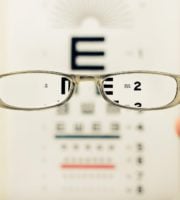Have you ever wanted to save on your electricity bills, but you have no way to produce the energy needed for your home? If this sounds like you, then solar panels are for you.
Solar panels can supply you with the energy needed to run your appliances and heat your home. They can also save you pocket change you might use to pay for a few more of your necessities.
If you’re wondering how much do solar panels save you, then keep on reading. We are going to go over some of the ways solar energy can save you money.
The Cost of Solar Panels
Solar panels are a great way to save money on your electric bill. The cost of solar panels has come down a lot in recent years, making them a more affordable option for homeowners.
Solar panels can help you save on your electric bill. These panels can provide enough power for your home, which can help you save money on your electricity bill.
They can help keep your home cool in the summer, which can help you save money on your air conditioning bill. In addition to that, solar panels can help you heat your water, which can help you save money on your water bill.
Lastly, solar panels can help you save money on your maintenance bill. Such panels can help you avoid the need for major repairs and maintenance on your home.
How Much You Can Save
Solar panels offer many benefits for homeowners. But the biggest question is, how much do solar panels save on electricity bills? Solar panels can reduce or eliminate your electric bill, and the savings can be significant.
In some cases, solar panels can even generate enough electricity to sell back to the grid, providing an additional source of income. Solar panels are also low maintenance, and their lifespan is typically 20-25 years.
Moreover, solar panels have been found to save the average homeowner between $84 and $187 per year on their energy bill. In some cases, solar panels can save homeowners up to $400 per year.
The solar panel savings depend on the size of the system, the amount of sunlight the panels receive, the utility company’s energy rates, and the municipality’s net metering policy.
The size of solar panel systems ranges from 1 kilowatt (kw) to 10 kw. A 1 kw system will save a homeowner about $84 per year, while a 10 kw system can save a homeowner up to $400 per year.
The Efficiency of Solar Panels
Solar panels can capture the sun’s energy and convert it into electricity, which can then be used to power your home. Solar panels are typically very efficient, meaning that they can convert a large amount of the sun’s energy into electricity.
This makes them a great investment for those looking to save money on their energy bill. They are also environmentally friendly, and their installation can increase the value of your home. If you are living in a residential area, you may check Blue Raven Solar company.
How Much Do Solar Panels Increase Your Home’s Value?
Solar panels have been shown to increase a home’s value by an average of $15,000, or 4.1% after they are installed. In some markets, including San Diego, Houston, and Colorado Springs, the value of a home with solar panels increased by more than $30,000.
It is important to remember that the installation of solar panels will also save the homeowner money on their utility bill, typically between $50-$100 per month.
Over the lifetime of the solar panels, which is approximately 25 years, the solar panels will have saved the homeowner $18,750 in electricity costs. In total, solar panels increase a home’s value by approximately $33,750.
Solar Panel Payback Periods
Solar panel payback periods are the length of time it takes for a solar panel system to pay for itself, through savings on your electric bill.
The average payback period for a residential solar panel system is about 7-8 years. But this number can vary greatly based on the state you live in, the size and location of your system, the amount of sun it receives, and your electricity rates.
In some cases, solar panels can start paying for themselves in as little as two years! And once they’re paid off, they continue to provide free electricity for decades.
How to Maximize Your Solar Panel Savings
Assuming you have a monthly electricity bill of $100, with an average price per kilowatt-hour of $0.15 and you use 1,000 kWh per year:
A 1 kilowatt (kW) system will cost you $1,500 after incentives (state and federal tax credits). This system will offset 1,000 kWh per month, which means your new monthly electricity bill will be $0.
With prices for solar dropping, you may be able to find a system that’s less than $1 per watt, which means your total investment would be even lower.
In some states, you may be able to lease a system for little to no money down and have a portion of your monthly savings go to the leasing company.
Effects of Solar Panels on Your Taxes
Solar panels can save you a considerable amount of money on your taxes. The federal government offers a tax credit of 30% of the cost of installing solar panels, with no upper limit.
This means that if you install a $30,000 solar panel system, you can claim a tax credit of $9,000. In addition, many states offer their solar tax credits and rebates, which can further reduce the cost of going solar.
For example, California offers a rebate of $1,500 for solar installations, while New York offers a tax credit of up to $5,000. Installing solar can also help you avoid paying taxes on the electricity that your panels generate.
In most states, the electricity generated by solar panels is exempt from state and local taxes. This can save you hundreds or even thousands of dollars over the life of your system.
How Much Do Solar Panels Save You: Explained
There is no one answer to how much do solar panels save you, as it largely depends on how much energy you use, the cost of electricity in your area, and the size and efficiency of your solar panel system.
Moreover, these solar panels have the added benefit of being environmentally friendly.
Also, you can get solar panels for your home or business, and you can also lease them. Many companies offer solar panel leasing, and you can find one that fits your needs and budget.
Read on for more solar panel-related articles like this one.







